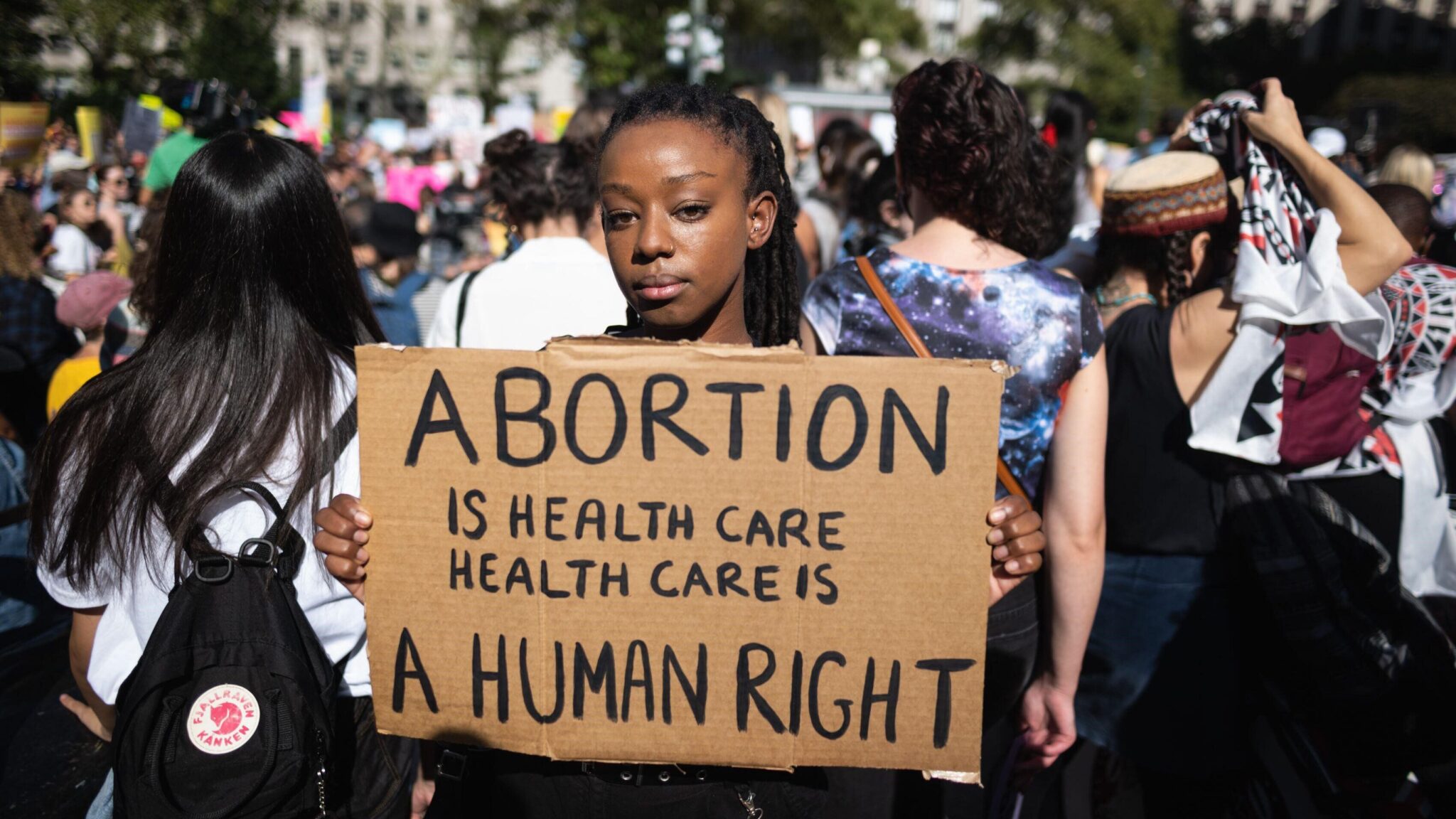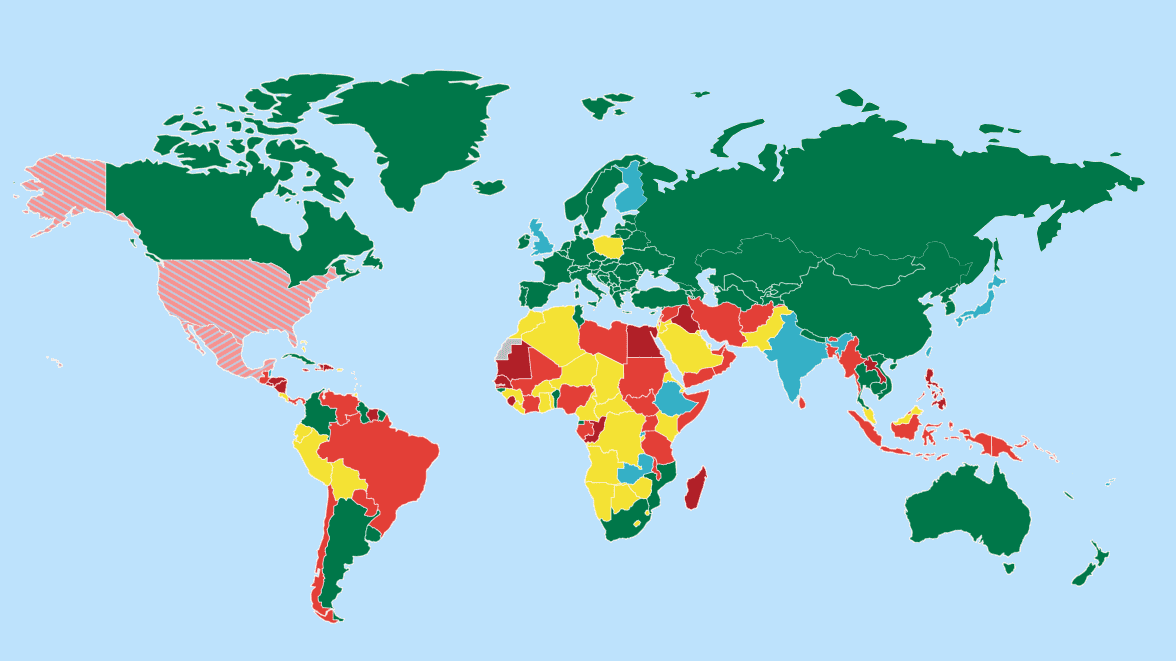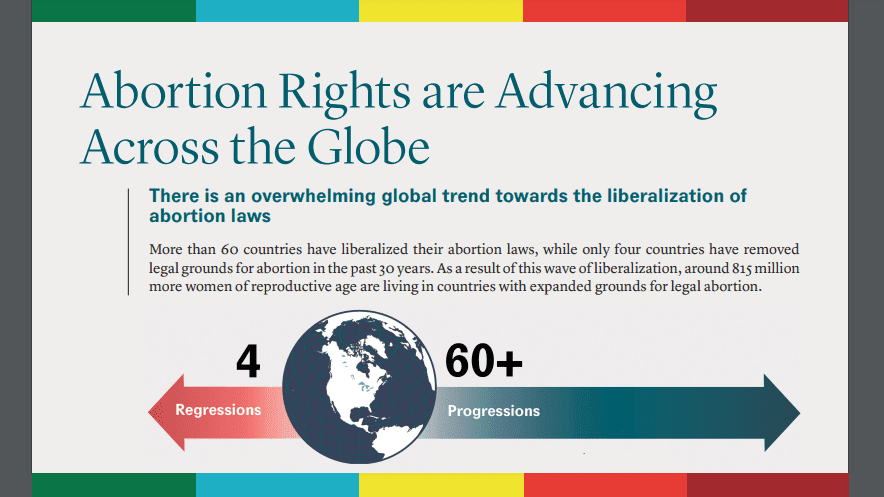The Global Context of the U.S.’s Regression on Abortion
As highlighted in a recent article and in Center resources, the U.S. has become a global outlier on abortion rights.

The United States’s regression on abortion rights has alienated the country on the international stage. After the U.S. Supreme Court eliminated the constitutional right to abortion in June 2022, the country became an international outlier amidst the overwhelming liberalization of abortion laws across the world.
With the Court’s ruling, the U.S. became one of only four countries—including El Salvador, Nicaragua, and Poland—that has removed legal grounds for abortion in recent decades.
A recently published article, “One Year Later: Dobbs v. Jackson Women’s Health Organization in Global Context,” written by leaders from the Center for Reproductive Rights, calls attention to the global implications of the U.S.’s regression.
Co-authored by the Center’s Katy Mayall, Director of Strategic Initiatives, and Risa Kaufman, former Director of U.S. Human Rights, and published in the American Bar Association’s Human Rights Magazine in July, the article examines the fallout of the U.S. Supreme Court’s 2022 ruling in the Dobbs case—which overturned Roe v. Wade and dismantled nearly 50 years of precedent protecting the right to abortion.
Claiming the Court’s ruling in Dobbs and the resulting proliferation of abortion bans in the U.S. “are counter to human rights,” the authors place the ruling in the context of international human rights law and the global trend toward liberalization of abortion.
In the year since the Court’s decision, while more than a dozen U.S. states have banned abortion, the authors note that many European countries—as well as non-European countries, such as Israel and Thailand—enacted laws expanding abortion access. Moreover, the Green Wave movement in Latin America has simultaneously achieved groundbreaking reforms throughout the region.
Together, such reforms reflect the global community’s widespread condemnation of the Dobbs decision, as well as international trends toward abortion liberalization.
Center Resources Examine How U.S. Regression Compares to Global Trends
The Center has published numerous resources examining the global implications of the U.S.’s regression on abortion rights, including:
- “U.S. Abortion Laws in Global Context” Fact Sheet—examines global trends in abortion law, noting how laws being passed in the U.S. are some of the most extreme in the world.
- “Global Trends: Abortion Rights” Infographic—graphic representation of the dozens of countries that have liberalized their abortion laws over past decades—as well as the very few that have regressed on abortion rights.
- World’s Abortion Laws Map—the definitive record of the legal status of abortion in countries across the globe, updated in real time.
These resources and many others can be found on the Center’s “U.S. Abortion Rights in Global Context” web page here.
U.S. Abortion Rights in Global Context: Analysis and Resources
Center analysis and resources on the global implications of the U.S.’s regression on abortion.
International Human Rights Law and Global Public Health Considerations of the U.S.’s Regression
The article by Mayall and Kaufman also contextualizes the Dobbs decision within international human rights law and global public health guidance, both of which reinforce the decision’s discriminatory impacts on marginalized communities.
The authors note that international human rights experts and mechanisms have recognized for decades that restrictive abortion laws violate many fundamental human rights, including the rights to life, privacy, health, equality and non-discrimination, and freedom from cruel, inhumane, and degrading treatment. Many of these protections are contained in treaties ratified by the United States. As such, the article outlines, U.S. abortion regression deviates from international human rights norms and global public health guidance.
“As U.S. advocates work to rebuild constitutional protections for abortion, developments around the globe, including comparative jurisprudence and human rights, can provide inspiration and the touchstone for a renewed and more robust understanding of what is necessary to protect and ensure full reproductive autonomy in the United States,” the article concludes.
Read the complete article here:
- “One Year Later: Dobbs v. Jackson Women’s Health Organization in Global Context,” American Bar Association’s Human Rights Magazine, 07.26.23
Read more:
- U.S. Abortion Rights in the Global Context—Center analysis and resources on the global implications of the U.S.’s regression on abortion.


